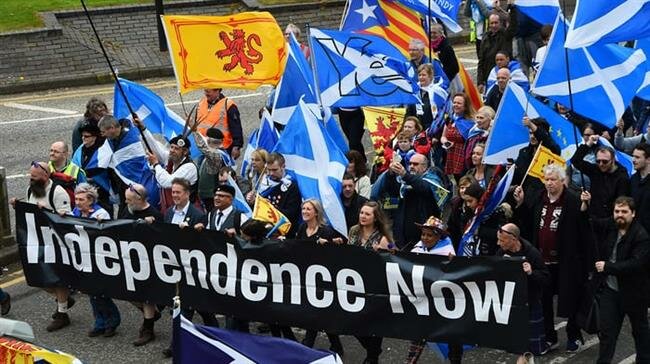On Wednesday May 29, the Scottish government approved a plan for a new referendum for Scottish independence from the United Kingdom (UK) in the wake of a prolonged Brexit crisis in UK. The plan formulated by the cabinet awaits the approval of the Scottish Parliament.
According to reports, the government’s plan is expected to be approved with ease given the pro-independence majority in the parliament and the referendum is set to take place before the next Scottish legislative elections in 2021. The move by the Scottish government led by the Scottish Nationalist Party (SNP) comes in the wake of the defeat of the ruling conservative party, the Tory Party, in the European Parliament elections and the deepening Brexit Crisis.
In the recently concluded elections to the European Parliament, the Brexit Party led by Nigel Farage emerged as the largest contingent to Brussels from UK. The Brexit Party garnered 30% votes and 29 Members of European parliament (MEPS) by running a campaign against the Tory government’s incapacity to advance Brexit proceedings. Both the conservatives and the Labour party faced severe setbacks in the election while the Scottish National Party increased their votes and got 3 MEPS.
During the Brexit vote held on June 23, 2016, 62% of Scotland voted to remain in the European Union (EU), while the total from across the UK voted 51.9% to leave the EU. The Tory government under the leadership of Theresa May has failed to reach a proper agreement with European Union which has increased the chances of having a Brexit with a no deal with the EU. Such a political crisis in UK has triggered huge anxiety in Scotland as the majority of the people in Scotland wanted to remain in the European Union: either in a UK within EU or as an independent state within the EU.
Nicola Sturgeon the First Minister of Scotland said that a fresh ballot before 2021 could give Scotland, “the opportunity to choose to be an independent European nation – rather than have a Brexit future imposed upon us.”
EuroNews reported that the First Minister had also said previously: “If all Westminster has to offer is more chaos and confusion – potentially under the premiership of an extreme Tory Brexiteer – then more and more people will come to the conclusion that Scotland’s future is best served as an independent country”.
In the 2014 national referendum held in Scotland on the issue of independence, 45% of voters answered “Yes” to Scottish independence from UK and 55% answered “No” with a turnout of 85 %.
Since 1600s, Scotland and Britain coexisted under the same monarchy and formalized their union in 1707. With the Treaty of Union in 1707 and subsequent Acts of Union, the Kingdom of Great Britain was formed, withstanding the resistance from the Jacobites. With inspiration from the Irish liberation movement, mobilizations for a home rule were strengthened in Scotland by the end of the 19th century. The movement which was backed by both conservatives and liberals opted for constitutional measures to achieve more autonomy in governance rather than a secession from the UK. After World War II, in the context of the decolonization movement around the world, aspirations for Scottish independence were strengthened.
The rise of Scottish National Party (SNP) to the mainstream in the second half of the 20th century was accompanied by a re-ignition of longing for Scottish Independence. In the 1970s, the political instability in the Westminster had forced the Labour Party to comply with The SNP and the Welsh Nationalists (Plaid Cymru) to go for a national referendum for devolution. In that referendum, in Scotland, there was a narrow majority in favor of devolution (52% to 48%), but that mandate was nullified by the Westminster on the grounds of a condition of the referendum which said that 40% of the total electorate should vote in favor in order to make it valid. They argued that since the turnout was only 63.6%, only 32.9% of the electorate voted “Yes”. And just like that, the first vote for Scottish autonomy was foiled by the Westminster. Another referendum for devolution took place in 1997 under the supervision of Labour Party in power in which 74,3% of the people approved the devolution and the Westminster voted for the constitution of a regional Scottish Parliament.





